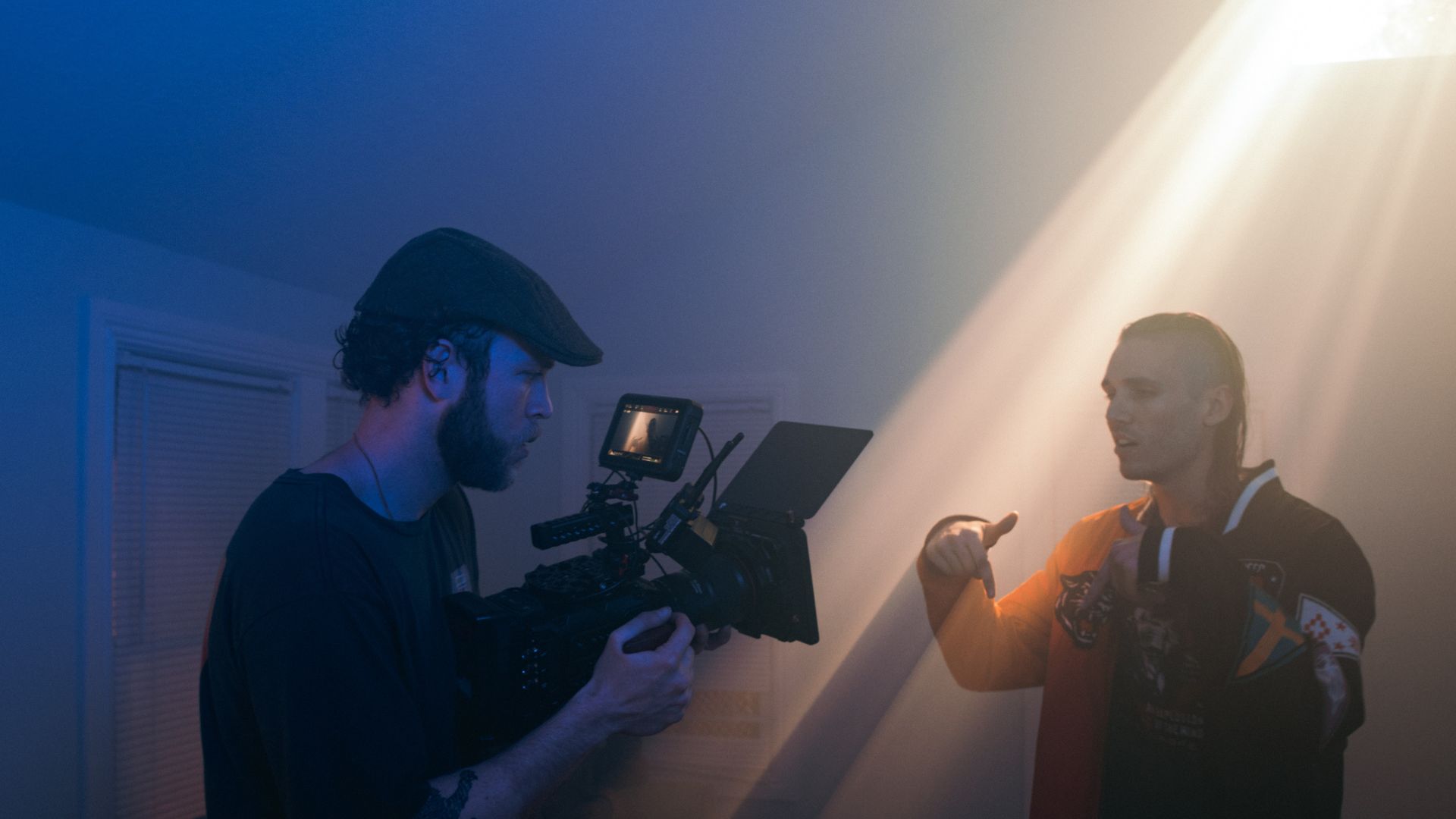In recent years, the entertainment landscape has shifted dramatically. What was once considered a cinema-dominant world has evolved into one where TV shows are increasingly being seen as the superior form of entertainment. The rapid rise of high-quality television, driven by large production budgets and an ever-growing roster of talented writers, has made TV shows a force to be reckoned with. Today, TV shows often outshine movies, offering longer, more nuanced stories, deeper character development, and greater flexibility. With the emergence of streaming platforms like Netflix, Disney+, and Amazon Prime Video, TV shows have become even more dominant, leading to the question: why are TV shows increasingly seen as better than movies in 2025?
In this article we’re looking at the rise of TV shows:
- The rise of high-quality television
- Flexibility in storytelling and character development
- The impact of streaming services
- The future of TV and film in 2025

The rise of high-quality television
There was a time when TV shows were viewed as second-rate entertainment compared to blockbuster films. However, that perception has changed dramatically over the last decade. The quality of TV shows has skyrocketed, with high-budget productions, incredible writing, and top-tier acting transforming the small screen into a formidable competitor for the big screen.
Shows like Game of Thrones (2011-2019) and Breaking Bad (2008-2013) demonstrated that television could offer complex narratives, stunning visuals, and emotional depth that rivalled anything found in cinemas. Game of Thrones set the bar for high-budget television with its cinematic visuals, intricate plot twists, and large-scale battles, while Breaking Bad became a cultural phenomenon for its perfectly crafted characters and intense storylines. These shows proved that television was no longer just about weekly episodic entertainment—it could be a medium capable of producing complex, artistic, and truly unforgettable content.
With the growth of streaming platforms, this trend has continued, with TV shows now attracting top-tier talent both in front of and behind the camera. Today, it’s not uncommon to see award-winning filmmakers, such as David Fincher (Mindhunter) or Martin Scorsese (Boardwalk Empire), working in the TV industry, further validating the prestige of television as a medium. As a result, many TV shows now feel like cinematic experiences, blurring the lines between movies and TV series in terms of quality and ambition.
Flexibility in storytelling and character development
One of the key reasons TV shows are surpassing movies in 2025 is the flexibility they offer in terms of storytelling and character development. Movies, while impactful in their own right, are often constrained by time. A typical feature film has a runtime of around two hours, meaning the story must be concise and streamlined. While this can lead to tight, efficient narratives, it also means that films often have to rush through character development, backstory, and world-building, especially in the case of adaptations from books or comics.
TV shows, on the other hand, have the luxury of time. With a typical season consisting of 8-10 episodes, or sometimes even more, TV shows can take their time to develop characters, explore intricate plotlines, and build worlds in a way that films simply can’t. For example, in shows like The Sopranos (1999-2007) or The Crown (2016-present), characters are given the space to evolve gradually, with their motivations, fears, and desires explored in depth over multiple seasons. This slow-burn storytelling allows for a much more nuanced exploration of character and theme than what most films can achieve.

Additionally, TV shows allow for long-form storytelling that spans multiple seasons, giving writers the opportunity to stretch a story arc over time. This type of storytelling can result in far more engaging and satisfying narratives. Series like The Wire (2002-2008) or Stranger Things (2016-present) show how characters can evolve, plotlines can twist, and the narrative can grow in unexpected ways, allowing audiences to invest in the world and its characters over a longer period.
The impact of streaming services
One of the most significant factors contributing to the rise of TV shows is the growing dominance of streaming platforms. Services like Netflix, Disney+, and Amazon Prime Video have revolutionised how we consume television, offering viewers the ability to watch entire seasons at once—also known as binge-watching. This change in viewing habits has altered how TV shows are created and consumed, encouraging creators to develop more complex, serialized content that rewards long-term investment from the audience.
Take Netflix’s The Crown (2016-present), for example. The show’s long-form, multi-season approach allows for a deep dive into the lives of British royalty, exploring their relationships, struggles, and historical events with a level of detail that would be impossible in a single film. The Boys (2019-present) on Amazon Prime, a satirical take on the superhero genre, also thrives on the ability to build its dark and twisted narrative over multiple seasons, tackling societal issues with depth and complexity.
The ability to release entire seasons at once has also changed the way TV shows are written and structured. Writers now know that audiences are likely to binge-watch their series, so they’re able to structure their stories with cliffhangers and character developments that keep viewers hooked for longer. This kind of engagement simply isn’t possible in a traditional movie format, where the entire plot needs to be contained within a couple of hours.
The future of TV and film in 2025
As we look ahead to 2025, it’s clear that TV shows will continue to dominate the entertainment landscape. The combination of high-quality production, deeper character development, and the flexibility of long-form storytelling means that television has now carved out a space that movies often can’t compete with. The streaming revolution has only accelerated this shift, with platforms continually pushing the boundaries of what TV can achieve in terms of quality and innovation.
Let’s recap today’s article:
- TV shows have improved in quality, with high-budget productions and top-tier talent creating cinematic experiences, making them a serious competitor to films.
- TV shows offer more room for character development and intricate plotlines, with the ability to build stories over multiple seasons, providing a deeper and more engaging experience than most films.
- Streaming platforms like Netflix, Disney+, and Amazon Prime Video have revolutionised TV by promoting binge-watching and offering content that rewards long-term investment from audiences.
- The success of platforms like Netflix encourages creators to develop complex, serialized content, leading to more innovative, multi-season storytelling that keeps viewers hooked.
- As TV shows continue to dominate with high-quality, in-depth storytelling, they are expected to remain at the forefront of entertainment, while films continue to hold their place in delivering concise, intense narratives.
While films will always have their place in cinema, especially with their ability to deliver intense, concise stories in a limited timeframe, the versatility of TV shows allows for a level of depth and emotional connection that simply cannot be replicated in a two-hour film. As audience expectations continue to evolve, TV shows will only grow in prominence, making 2025 and beyond an exciting time for television lovers everywhere. Whether it’s through the storytelling depth of The Crown or the action-packed thrill of Stranger Things, TV shows are set to lead the way in modern entertainment.
“In 2025, TV shows are outshining movies because they offer a level of depth, character development, and storytelling that films simply can’t match in a few hours. With long-form narratives and the power of streaming, television has become the canvas where the most compelling stories are painted, one episode at a time.”








